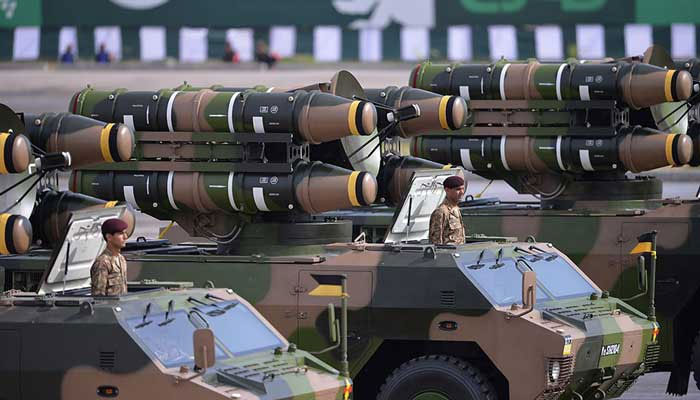Algorithmic warfare
Military domination will no longer be defined by personnel strength. Military domination will no longer be defined by quality or quantity of military equipment. Military domination will no longer be defined by the size of the defence budget. Military domination will no longer be defined by logistical capabilities. Military domination will no longer be defined by nuclear prowess. The era of military dominance is shifting away from mere personnel strength, the quality and quantity of military equipment, the size of the defence budget, logistical capabilities, or nuclear prowess.
Military domination, in the not too distant future, will be defined by the ‘performance of military algorithms’. Algorithms in command and control systems. Algorithms in strategy. Algorithms in tactics. Algorithms in data analysis. Algorithms in intelligence. Algorithms in logistics. Algorithms in supply chain management. Algorithms in simulation. Algorithms in training. Algorithms in predictive analysis. Algorithms in cybersecurity. Algorithms in communication. Algorithms in targeting. And algorithms in precision strikes.
What really is an algorithm? An algorithm is a “step-by-step set of instructions that a computer or person follows to solve a particular problem or accomplish a specific task. Algorithms act as an exact list of instructions that conduct specified actions in either hardware- or software-based routines.”
In command and control systems, algorithms are being used to optimize military decision-making processes. Algorithms are already helping military leaders assess enemy movements, terrain, and resource availability, to formulate effective strategies and tactics.
Military operations produce three key types of data: communication intercepts, satellite imagery, and sensor readings. Algorithms are already playing a crucial role in processing this extensive data to achieve three primary objectives: extracting meaningful insights, identifying patterns, and facilitating informed decision-making. This is crucial for both intelligence gathering and situational awareness.
Algorithms are already being used to optimize military logistics and supply chain operations. Algorithms are already making military transportation and distribution more efficient. As military training often involves simulations that replicate real-world scenarios, algorithms are being used to model the behaviour of enemy forces, weather conditions, and terrain, providing realistic training environments for military personnel.
Algorithms are already being used for predictive analysis in at least three areas: enemy movements, assessing potential threats, and estimating the outcomes of different courses of action. Algorithms are also being used for securing military networks, communications, and systems. Advanced encryption algorithms are being used to protect sensitive information and ensure secure communication. Algorithms are being employed for target tracking and precision-guided munitions in order to improve the accuracy of military operations.
One of the most fascinating developments in military applications centers around leveraging algorithms for swarm intelligence for drone operations. Additionally, advancements in casualty care and evacuation operations represent another noteworthy facet of this evolving landscape.
The traditional metrics of strength, size of an army, equipment, budget, logistics, and nuclear capabilities are giving way to a new era defined by the power of algorithms. There is no option but to fully embrace algorithmic advancements. To be certain, the future of military dominance lies in the strategic application of algorithms across diverse operational facets, marking a paradigm shift in warfare capabilities.
The writer is a columnist based in Islamabad. He tweets/posts @saleemfarrukh and can be reached at: farrukh15@hotmail.com
-
 Billie Eilish Slammed For Making Political Speech At Grammys
Billie Eilish Slammed For Making Political Speech At Grammys -
 Beverley Callard Announces Her Cancer Diagnosis: 'Quite Nervous'
Beverley Callard Announces Her Cancer Diagnosis: 'Quite Nervous' -
 WhatsApp May Add Instagram Style Close Friends For Status Updates
WhatsApp May Add Instagram Style Close Friends For Status Updates -
 Winter Olympics Officially Open In Milan, Cortina With Historic Dual Cauldron Lighting
Winter Olympics Officially Open In Milan, Cortina With Historic Dual Cauldron Lighting -
 Sciences Reveals Shocking Body Response Against Heart Attack
Sciences Reveals Shocking Body Response Against Heart Attack -
 Who Is Charlie Puth? Inside Awards, Hits & Journey Of Super Bowl Anthem Singer
Who Is Charlie Puth? Inside Awards, Hits & Journey Of Super Bowl Anthem Singer -
 Jared Leto 'swings For The Fences' In 'Master Of The Universe'?
Jared Leto 'swings For The Fences' In 'Master Of The Universe'? -
 Kelsea Ballerini, Chase Stokes Not On Same Page About Third Split: Deets
Kelsea Ballerini, Chase Stokes Not On Same Page About Third Split: Deets -
 Shanghai Fusion ‘Artificial Sun’ Achieves Groundbreaking Results With Plasma Control Record
Shanghai Fusion ‘Artificial Sun’ Achieves Groundbreaking Results With Plasma Control Record -
 Princess Anne Enjoys Andrea Bocelli, Lang Lang Performances At Winter Olympics Opening Ceremony
Princess Anne Enjoys Andrea Bocelli, Lang Lang Performances At Winter Olympics Opening Ceremony -
 Ben Stiller Cherishes Working With Late David Bowie
Ben Stiller Cherishes Working With Late David Bowie -
 Anti-inflammatory Teas To Keep Your Gut Balanced
Anti-inflammatory Teas To Keep Your Gut Balanced -
 Polar Vortex ‘exceptional’ Disruption: Rare Shift Signals Extreme February Winter
Polar Vortex ‘exceptional’ Disruption: Rare Shift Signals Extreme February Winter -
 Which Countries Are Worst And Best In Public Sector AI Race?
Which Countries Are Worst And Best In Public Sector AI Race? -
 Matthew McConaughey Opens Up About His Painful Battle With THIS
Matthew McConaughey Opens Up About His Painful Battle With THIS -
 Emma Stone Reveals She Is ‘too Afraid’ Of Her ‘own Mental Health’
Emma Stone Reveals She Is ‘too Afraid’ Of Her ‘own Mental Health’




